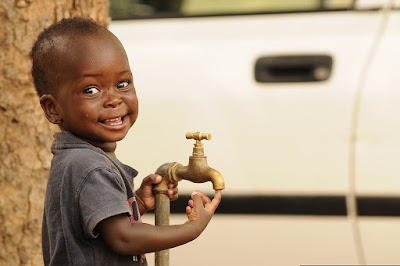How is Water Problem in Africa Being Addressed?
There are several different groups and government
bodies working to solve the shortage of water in Africa. Although there’s no
perfect answer, and a long-term solution seems like it could be miles away
still, this isn’t a problem that’s just flying under the radar. People around
the world care about Africa’s water crisis, and there are a few different ways
in which this problem is slowly but surely being addressed. Below are some of
the most effective.
· World
Water Week – This is a week designed with the African
water crisis in mind. Although the event doesn’t only focus on Africa, it takes
center stage more often than not as an area of increased risk and greatest
concern. During this week, which is held one or two times a year depending on
need, world leaders from countries across the globe come together to try to
solve water-related issues that affect a number of different locations. They
brainstorm plans and enact new procedures that are intended to improve the
quality of water around the world.
·
United
Nations water recognition – In 2010, the United
Nations officially recognized water as a basic human right. Although to some
people it seems impossible to fathom that it would take that long for the UN to
come to this conclusion, there were a lot of complicated politics involved in
the statement. Basically, this recognition means that individual members of the
UN must prioritize the available of fresh, clean drinking water above anything
else other than the other basic human rights. This provision also included the
right to simple improved sanitation conditions. Since this change, countries
have been working harder than ever to try to improve the drinking water
situation in Africa.
· Charities – Nonprofit organizations and charities spend a lot of time, money,
and energy focusing on Africa’s water crisis. These groups take it upon
themselves to provide clean, fresh drinking water to the people who need it
most. Many times, they travel to Africa to dig groundwater wells. They might
also help the residents of rural communities install biofilters that can be
used to clean up the surface water they’re already using. Each individual
location is examined on a case-by-case basis to determine its specific needs.
There are plenty of great charities out there, but unfortunately, there are
some shady ones too.
· Government
donations – Some countries are more well-off than
others, and they can afford to send some monetary donations on a large scale to
African countries to help improve the water infrastructure and clean up surface
water sources. Unfortunately, it can be difficult to see just how the money
sent as part of these donations is really being used, and most of the time it
just isn’t enough to get the continent on its feet in terms of water supply.
With many different plans in the works, it’s obvious
that governments and organizations from most developed countries understand the
need for clean water in Africa. However, there is always more that can be done,
and it’s important to pay close attention to what your country is doing and the
ways in which they could improve their involvement on a large scale.














